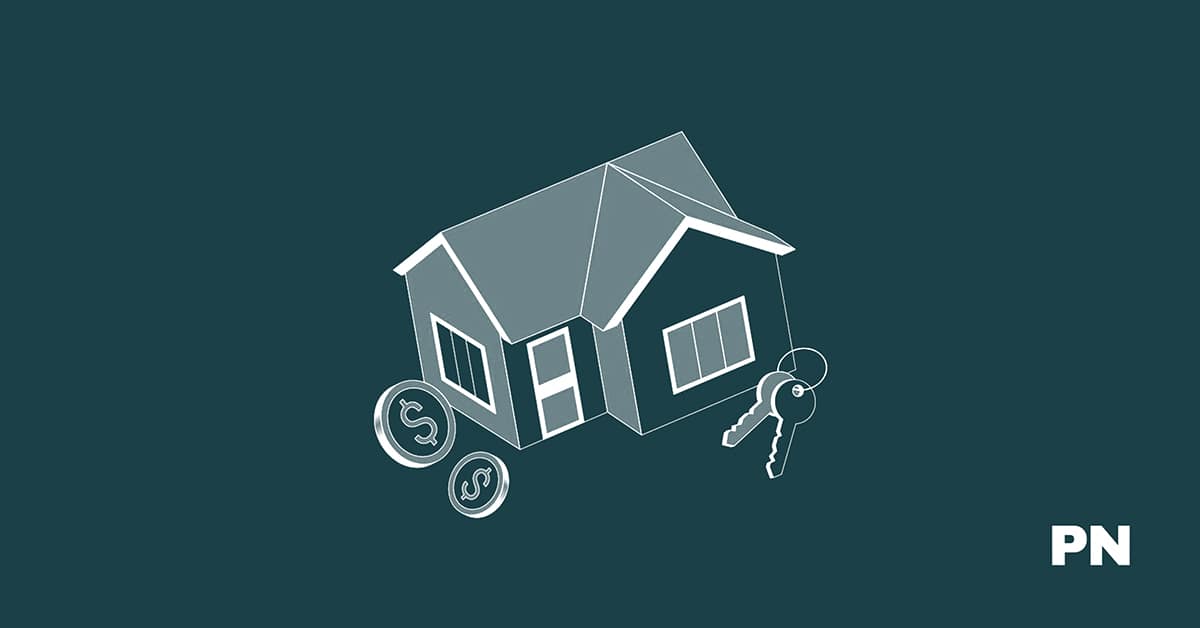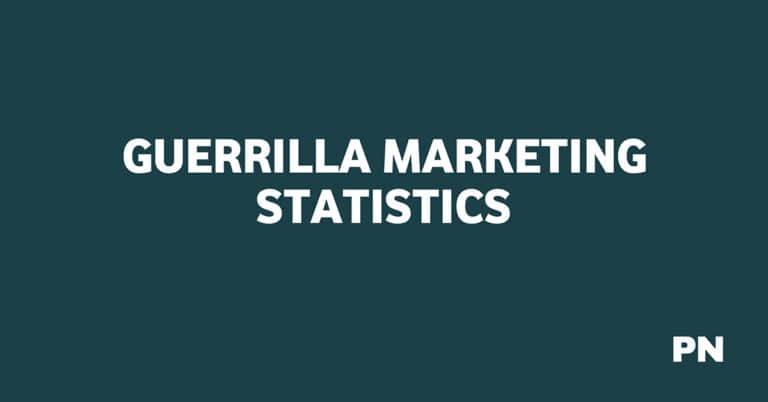27 Real Estate Marketing Statistics: Key Industry Insights

Understanding the latest statistics is crucial as you navigate the dynamic terrain of real estate marketing.
With 89% of home shoppers utilizing mobile search engines, the industry’s shift towards digital mediums is undeniable.
Your ability to leverage online tools and platforms can substantially impact your success in real estate.
As high-quality photographs expedite sales by 32% faster and video content boosts inquiries by 403%, there’s a high demand for digital marketing savvy.
Understanding these statistics can help you refine strategies, prioritize resources, and fully harness real estate marketing’s potential.
1. The global real estate market is expected to reach $637.80 trillion by 2024.
(Source: Statista)
This growth is due to population growth, economic development, and technological advancements. For example, an increasing global population fuels demand for residential spaces.
Also, improved economic conditions empower more people to invest in property.
| Year | Projected Market Size ($ trillion) |
|---|---|
| 2024 | 637.80 |
| 2028 | 729.40 |
2. The US real estate market is worth $47 trillion.
(Source: Redfin)
This reflects not merely the number of properties or their prices but the combined economic weight of residential real estate nationwide.
In June, the value increased by 0.4% compared to the previous year, which translates to an addition of roughly $166.2 billion.
The market made a significant recovery, surging by 19.1% from two years prior, amounting to an increase of approximately $7.5 trillion.
The market has robustly bounced back after a dip in value by $2.9 trillion due to rising mortgage rates from June 2022 to February 2023.
About nine out of ten homeowners hold mortgages with interest rates below 6%, making current financial conditions comparatively favorable for many.
With these insights, you can better assess the dynamics and opportunities within the US housing market.
Whether investing, buying, or selling, the market’s size and value are crucial in informing your decisions.
3. A majority (23%) of surveyed house sellers said they mainly hired real estate agents because they needed help pricing their homes competitively.
(Source: NAR Research Group)
A knowledgeable agent’s expertise in evaluating your area’s market conditions and comparable sales is invaluable.
A real estate agent can prepare a CMA to help understand the local market. They can also advise on pricing strategies that align with your selling goals.
A well-priced home can attract more potential buyers, increasing the likelihood of a quicker sale.
Trust in your real estate agent’s ability to price your home effectively may contribute to a successful and satisfactory selling experience.
4. 41% of recent buyers began their home buying process by searching online, and 95% used online tools in their search process.
(Source: NAR)
This indicates the critical role of digital platforms and listings in finding a home. You will likely use a wide range of online tools during your search.
- Property listings: Websites with a catalog of homes for sale provide a convenient way to view many properties.
- Virtual tours: You can explore homes from the comfort of your current residence.
- Online maps: Tools such as Google Maps help you investigate neighborhoods and proximity to amenities.
- Mobile apps: Real estate apps put property searches, price comparisons, and other features at your fingertips.
- Mortgage calculators: These help you estimate your potential monthly payments.
- Online reviews: Ratings of real estate agents, neighborhoods, and properties assist in informed decision-making.
Your use of online platforms is a testament to how digital tools have transformed the home buying process, making it a more informed and efficient experience.
5. In 2020, 97% of homebuyers used the internet in their home search, 50% using a desktop or laptop, and 50% using a mobile device.
(Source: GAAR)
The internet has become an indispensable tool for homebuyers, providing information and resources to help them make informed decisions.
Homebuyers use various devices to conduct their searches, and having a strong online presence across multiple platforms is crucial for real estate professionals and sellers alike.
They can easily research neighborhoods, property types, price ranges, access listings, and virtual tours.
The Internet allows homebuyers to search anywhere and anytime, making the process more flexible and convenient.
With so much online information, homebuyers can easily compare different properties and make informed decisions based on their preferences and needs.
6. Direct Mail Has the Highest ROI of All Real Estate Advertising Campaigns.
(Source: The CE Shop)
This statistic emphasizes the effectiveness of direct mail campaigns in generating a high return on investment (ROI) for real estate advertising.
Despite the increasing popularity of digital marketing channels, direct mail remains a powerful tool for real estate professionals looking to reach potential clients and drive sales.
Direct mail allows real estate professionals to target specific neighborhoods or demographics, ensuring their messaging reaches the most relevant audience.
With many real estate professionals focusing on digital marketing channels, direct mail campaigns can help them stand out.
7. 99% of Millennials and 90% of Baby Boomers Begin Their Property Search Online.
(Source: Sprout Social)
Real estate professionals need a strong online presence to effectively reach and engage with potential buyers.
Online platforms allow users to search for properties conveniently, making the process more flexible.
Users can easily compare different properties and their features, allowing them to make informed decisions based on their preferences and needs.
Many online platforms allow users to customize their search criteria, making it easier to find properties that match their specific requirements.
8. 51% of real estate professionals use social media for lead generation.
(Source: NAR)
Social media has become a foundational tool for lead generation in the real estate industry.
With a vast and diverse user base, social media platforms allow real estate professionals to reach a large audience with their messaging.
Also, social media platforms offer targeted advertising options, allowing real estate professionals to reach and target their messaging to the most relevant audience.
Social media allows real estate professionals to build their brand and establish themselves as experts in their field, which can help attract new clients.
9. 58% of all website visits to real estate websites are from mobile devices.
(Source: NAR)
Mobile devices allow users to access real estate websites from anywhere and at any time, making browsing properties on the go or during downtime easier.
Many mobile devices have GPS capabilities, allowing users to search for properties based on their current location or access location-specific information about nearby properties.
10. 89% of new home shoppers initially and throughout their research use a mobile search engine.
(Source: NAR)
11. 88% of consumers trust online reviews as much as personal recommendations.
(Source: Invesp)
Statistics show that products with at least five reviews have a 270% higher conversion rate than those without.
Stay vigilant with your online reputation, as it is a transparent record of your brand’s reliability and quality of service.
Remember, in modern real estate marketing, a substantial segment of your potential clientele will likely consult online reviews before engaging your services.
Your attention to this area is prudent and necessary in the digital age.
12. 72% of consumers say positive testimonials and reviews increase their trust in a business.
(Source: BigCommerce)
13. 72% of real estate marketers rely on data and analytics to make informed decisions.
(Source: LinkedIn)
Data and analytics provide real estate professionals with valuable insights into their target audience, market trends, and the effectiveness of marketing efforts.
This allows them to make informed decisions about allocating resources and optimizing their strategies.
Data and analytics enable real estate professionals to personalize their marketing efforts to each client, making their messaging more relevant and engaging.
Real estate professionals who effectively leverage data and analytics gain a competitive advantage over those who do not. Hence, they can better understand their market and target audience.
14. 49% of real estate marketers are investing more in data analytics.
(Source: LinkedIn)
Real estate marketing is evolving rapidly, and data analytics has become a central component of modern strategies.
Nearly half of the industry’s marketers recognize the significance of data-informed decisions and, as a result, are increasing their investment in this area.
Remember, as analytics tools advance, staying updated with the latest technologies and methodologies is essential to maintain a competitive edge.
Your commitment to investing in data analytics will future-proof your marketing efforts and provide a deeper connection with your prospects and clients.
15. 26% of real estate agents use YouTube despite its significant user base.
(Source: NAR)
Given the platform’s extensive reach and the effectiveness of video content in engaging audiences, you might wonder why the number isn’t higher.
One reason could be the lack of familiarity or expertise in video production.
Producing high-quality, engaging video content consistently requires both technical skills and a considerable amount of time. You might find these resources challenging to allocate as a real estate agent.
Yet, the benefits of using YouTube for real estate marketing are compelling:
- High Engagement: Video content has proven to have a higher engagement rate compared to other content types.
- SEO Benefits: YouTube is owned by Google, leading to potential SEO benefits when your content aligns with what potential clients are searching for.
- Visual Tours: You can offer virtual property tours, effectively showcasing properties to a broader audience.
To stay ahead in the competitive real estate market, consider leveraging YouTube as part of your marketing strategy.
You can reach a vast audience, showcase properties creatively, and build your brand’s presence in the digital world.
16. 57% of Realtors use social media daily to promote their business.
(Source: NAR)
Integrating social media into your daily routine might seem daunting, but it’s clear that a significant portion of the industry finds value in these tools.
You can effectively connect with potential clients and industry partners by posting property photos, sharing market insights, or engaging in community discussions.
Remember, these platforms offer distinct audiences and features.
Facebook is great for community engagement and ads, Instagram excels in visual storytelling, and LinkedIn is ideal for networking with professionals.
Prioritizing daily social media activity can help you keep pace with market trends and maintain a competitive edge in your real estate marketing strategies.
17. 63% of Realtors use social media to promote listings.
(Source: NAR)
Utilizing social media as a realtor allows you to tap into vast networks where your audience spends considerable time.
Engaging content, virtual tours, and instant interaction can elevate your property’s profile beyond the traditional sphere.
Incorporating social media strategies into your marketing plan is imperative to keeping up with trends, as reflected by the high percentage of Realtors already doing so.
18. 59% of Realtors agree that social media is “very” or “somewhat” important.
(Source: NAR)
19. 46% of Realtors agree that social media is the best tool for generating quality leads.
(Source: NAR)
20. 38% of new real estate clients came from social media in 2022.
(Source: The Close)
Channels like Facebook, Instagram, and LinkedIn are more than just networking platforms. They are essential tools for engaging potential clients and showcasing your property portfolio.
Your marketing efforts on these platforms should be strategic and data-driven to effectively reach your target audience.
Consider each platform’s culture and mechanics to create compelling content that resonates with potential clients.
Engaging visuals, interactive posts, and client testimonials will enhance your social media presence and improve your chances of acquiring new clients through this digital channel.
21. 89% of real estate agents use Facebook for their business.
(Source: NAR)
Recent data underscores Facebook’s significant role in the real estate industry.
As you continue to navigate the real estate market, consider the following actions to optimize your Facebook presence:
- Regularly update your business page with fresh content and listings.
- Use targeted ads to reach potential clients.
- Engage in community groups to increase visibility.
- Share client testimonials and success stories to build trust.
- Optimize your strategies by tracking engagement through Facebook’s analytics tools.
22. Instagram is used by 59% of Realtors, making it the second most popular platform after Facebook.
(Source: NAR)
While Facebook remains the leading platform for realtors, with 89% usage, Instagram is not far behind.
Take advantage of Instagram’s visual-centric platform to showcase properties through high-quality images and videos.
Also, use relevant hashtags for broader reach and engage with potential clients through interactive stories.
Since Instagram’s competition is less stiff than Facebook’s, you have a promising opportunity to stand out and appeal to a younger demographic.
With strategic use of Instagram, you have the potential to boost your real estate business by reaching a broader audience more engagingly.
23. LinkedIn is used by 53% of Realtors for business purposes.
(Source: NAR)
LinkedIn is a great place to connect with serious-minded people.
Maintaining an active LinkedIn profile lets you showcase your expertise, share market insights, and post property listings.
Remember, your presence on LinkedIn reflects your brand and enhances your outreach capability in the real estate market.
Employ the platform’s tools and features to elevate your professional standing and fortify your business’s foundation.
24. Social media posts are ideal for sharing home listings with a large audience.
Social media platforms offer an expansive stage for broadcasting home listings to a diverse audience.
When you share listings on your social accounts, you reach your existing followers and extend your reach through shares, likes, and comments.
Leveraging social media’s vast reach can increase your listings’ visibility, foster engagement, and widen your potential client pool.
Remember to tailor your posts to align with the platform’s preferred content type for maximum impact.
25. Nearly half of Realtors consider social media ads the most effective.
(Source: Hootsuite)
Adopting social media platforms for advertising reflects an understanding of their reach and targeting capabilities.
Social media platforms target your advertisements based on detailed demographics, interests, behaviors, and locations.
With social media ads, you can access comprehensive data analytics to measure engagement and optimize your campaigns for better performance.
26. Listings with video receive 403% more inquiries than those without.
(Source: PropertyNest)
Incorporating video into your real estate listings can significantly enhance their visibility and appeal. This substantial increase underscores the importance of video as a powerful marketing tool in the real estate industry.
Your potential buyers want an immersive experience that only video can provide.
By watching a video, they can get a feel for the property’s layout, features, and atmosphere, which static photos can’t fully convey.
This immersive experience encourages more inquiries, as buyers can better envision themselves in the home.
27. Properties with high-quality photography sell 32% faster.
(Source: PR Newswire)
As a real estate professional, understanding the impact of high-quality photography on property sales is critical. This valuable insight emphasizes investing in quality visuals when marketing your property.
Professional photos portray your property in the best light, increasing appeal.
High-quality images can create a stronger emotional pull, prompting quicker offers.
Remember, your goal is to make a memorable first impression.
Investing in professional photography is not just about taking pictures; it’s about crafting a compelling visual story that sells.
Frequently Asked Questions
What type of marketing is best for real estate?
Video marketing has proven very effective in real estate. 90% of marketers report that it has helped them generate leads.
How much do top real estate agents spend on marketing?
Top real estate agents invest substantially in their marketing efforts, often allocating a significant percentage of their commission income to various marketing channels to maintain a competitive edge and maximize their reach.
How can I be a good real estate marketer?
To excel in real estate marketing, focus on building a strong online presence, understanding your target audience, and employing a mix of digital tactics, including SEO and video marketing. Continuously measure the performance of your strategies to refine your approach.
How can real estate agents use social media to increase sales?
Real estate agents can use social media to increase sales by showcasing properties, sharing customer testimonials, and providing valuable content to their audience. Engaging with users and utilizing social media advertising can drive traffic to their listings and increase sales opportunities.
What are the most popular platforms for real estate marketing?
Social media sites such as Instagram and Facebook, as well as real estate-focused websites like Zillow, are the most popular platforms for real estate marketing. Video hosting platforms like YouTube are also effective for sharing virtual tours and engaging content.
Conclusion on Real Estate Marketing Statistics
Video content has proven effective, with 90% of marketers recognizing its impact on lead generation.
Your focus on this medium can cater to the visual needs of potential buyers and help differentiate your listings.
Organic search should not be overlooked, given its impressive average conversion rate of 3.2%. This underscores the importance of a robust SEO strategy to increase visibility and drive traffic.
Meanwhile, the average conversion rate for paid search is 1.5%, indicating that while useful, it may offer less return than organic efforts.
Incorporate these insights strategically to remain competitive and drive your real estate marketing forward.
Disclosure: We may earn commissions if you buy via links on our website. Commissions don’t affect our opinions or evaluations. We’re also an independent affiliate of many platforms, including ClickFunnels, Kartra, GoHighLevel, Podia, Northwest Registered Agent, and others. We’re not employees of these services. We receive referral payments from them, and the opinions expressed here are our own and are not official statements of these companies.





